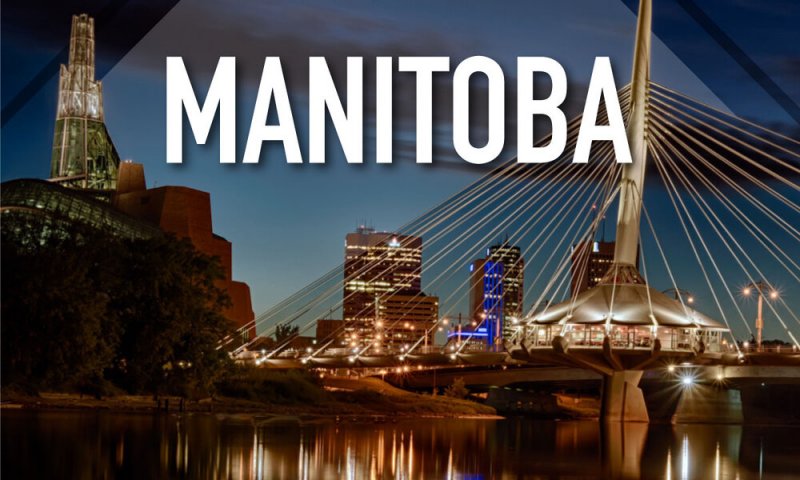
There is a growing need to recruit internationally-trained nurses in Canada due to chronic and increasing labour shortages in Canada’s hospitals and clinics.
COVID-19’s latest Omicron-fuelled wave is putting a massive strain on a healthcare system that was already trying to deal with a paucity of nurses before the pandemic even started.
When you add these things together, you get a recipe for a level of burnout which is well beyond anything that we’ve ever experienced. And it will manifest itself in people leaving in significant numbers,” Michael Hurley, president of the Ontario Council of Hospital Unions, reportedly told Global News.
Massive Healthcare Labour Shortages Mean Opportunities For Nurses
Even before the pandemic, Ottawa’s Jobbank employment website was forecasting a shortage of 36,500 nurses for the period from 2019 through to 2028.
The situation is much more dire now. The Indeed.ca job website had more than 19,200 job listings for nurses in Canada in early February.
At the upper end of the wage scale, a nurse in the Canadian territory of Nunavut can earn a median annual wage of $169,045 based on a 37.5-hour work week. The median annual wage for nurses across Canada is $78,000 based on that standard work week.
Foreign nationals with the qualifications to work in Canada as nurses can use their expertise to seek out jobs here and gain their permanent residency through the many economic immigration programs at the federal and provincial levels, including through the Express Entry system, one of the Provincial Nominee Programs (PNP) or the Skilled Worker program in Quebec.
Through the Express Entry system, nurses can often qualify for the Federal Skilled Worker program, provided their Comprehensive Ranking System (CRS) profile scores highly enough.
Nurses can also qualify to come to Canada through the Skilled Worker program in Quebec if they score 50 points or more on the province’s selection grid.
Each province in Canada also operates its own PNP that leads to Canadian permanent residence.
Registered nurses who hold a university degree in nursing, registered psychiatric nurses who hold a bachelor’s or post-grad degree in psychiatric nursing, and licensed practical nurses, or registered practical nurses in Ontario, with post-secondary diplomas in nursing, are all welcome in Canada.
Foreign Nurses Need To Have Their Credentials Recognized
Immigrating to Canada for these nursing professionals can be as simple as one, two, three.
The first step for a nurse eyeing Canada as a destination for immigration is to have his or her academic credentials evaluated to see if they are up to Canadians standards.
The Canadian government recognizes five organizations for the assessment of foreign educational credentials:
- World Education Services (WES);
- International Credential Assessment Service of Canada (ICAS);
- Comparative Education Service (CES);
- International Qualifications Assessment Service (IQAS), and;
- International Credential Evaluation Service (ICES).
Once the educational and background checks have been completed, the next step is for the prospective immigrant to have those nursing credentials recognized in Canada by the National Nursing Assessment Service (NNAS), a step that costs US$650.
The second step in the process for the foreign national looking to immigrate to Canada as a nurse is to create a profile on the NNAS application page.
That requires:
- The submission of two pieces of identity that must be notarized, copes of original documents that have been signed, dated and stamped;
- a completed nursing education form that can be downloaded from the website filled out, and signed before being sent to the school where the nurse was educated for that school’s officials to complete and then send directly to NNAS along with academic records or transcripts, course curriculum and course descriptions and syllabi;
- submission of the nursing registration form which is to be sent to the nursing licensing authority where the nurse is currently registered in his or her home country;
- the nursing practice/employment form which must be signed and sent to all employers the nurse has had over the past five years for them to complete and send to NNAS, and;
- the prospective applicant for immigration’s IELTS language testing results, which must be sent directly to NNAS from an approved language-testing organization or company.
Foreign Nurses Must Apply To Provincial Regulatory Authorities
After that has been done and the documents have been received by NNAS, the nurse can submit his or her application and pick the nursing group and provincial association to which they wish to apply.
These include:
- British Columbia College of Nursing Professionals and Midwives;
- College of Registered Nurses of Alberta;
- College of Licensed Practical Nurses of Alberta;
- College of Registered Psychiatric Nurses of Alberta;
- Saskatchewan Registered Nurses Association;
- Saskatchewan Association of Licensed Practical Nurses;
- Registered Psychiatric Nurses Association of Saskatchewan;
- College of Registered Nurses of Manitoba;
- College of Licensed Practical Nurses of Manitoba;
- College of Registered Psychiatric Nurses of Manitoba;
- College of Nurses of Ontario;
- Ordre des infirmières et infirmiers du Québec;
- Ordre des infirmières et infirmiers auxiliaires du Québec;
- Nurses Association of New Brunswick;
- Association of New Brunswick Licensed Practical Nurses;
- Nova Scotia College of Nursing;
- College of Registered Nurses of Prince Edward Island;
- College of Licensed Practical Nurses of Prince Edward Island;
- College of Registered Nurses of Newfoundland and Labrador;
- College of Licensed Practical Nurses of Newfoundland and Labrador;
- Registered Nurses Association of the Northwest Territories and Nunavut;
- Government of Northwest Territories, Registrar, Professional Licensing, Health and Social Services;
- Registered Nurses Association of the Northwest Territories and Nunavut;
- Government of Nunavut, Department of Health;
- Yukon Registered Nurses Association, and;
- Government of Yukon, Yukon Department of Community Services.





Under the program, candidates with a valid endorsement from an Atlantic Canadian business will be able to apply for permanent residence. To immigrate to Atlantic Canada through the program, candidates